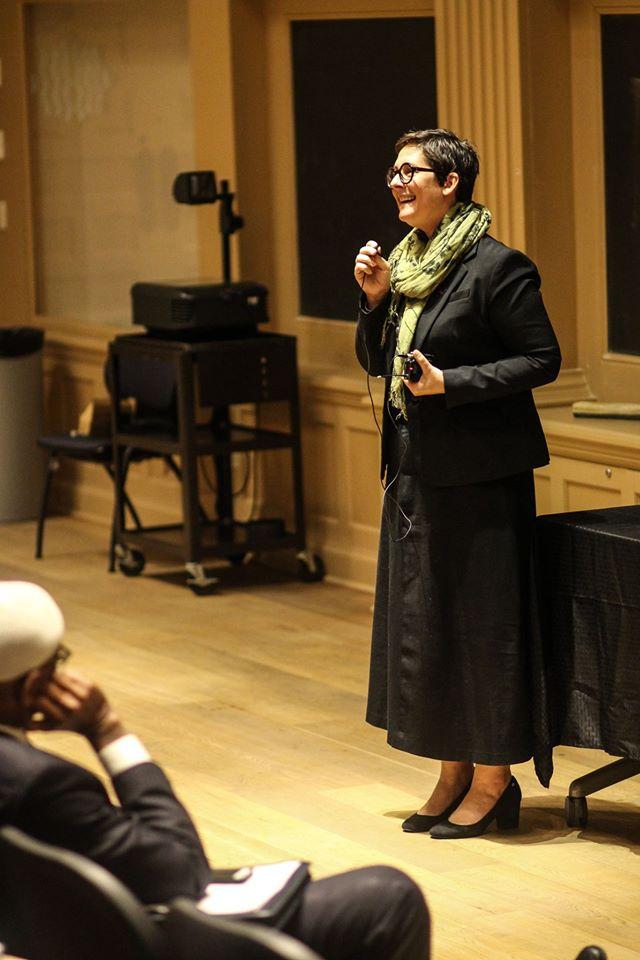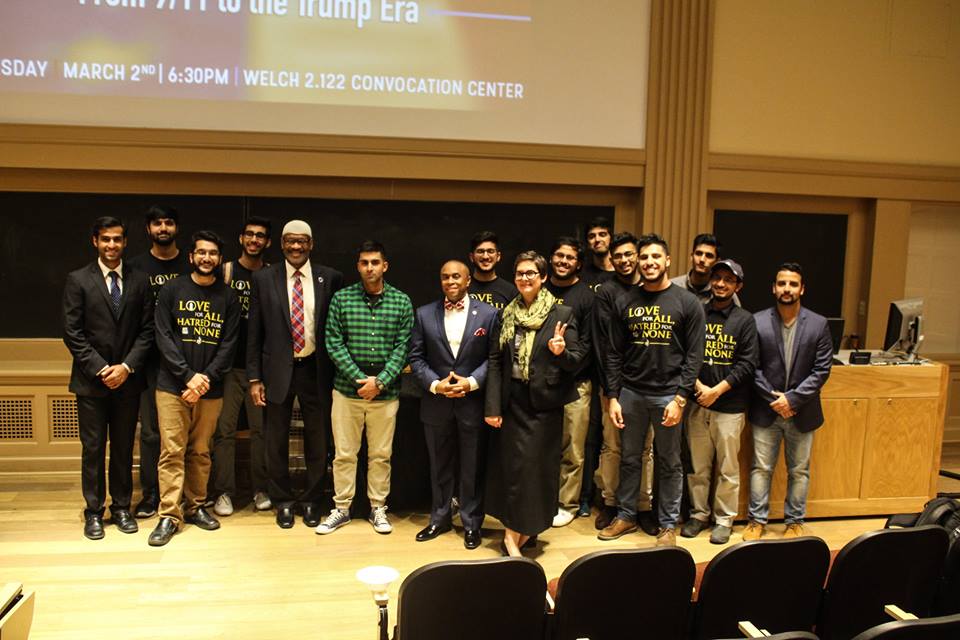“Islam has made me a better person,” said Amanda Quraishi, diversity activist and panelist at Texas Ahmadiyya Muslim Students Organization’s event, ‘Islam in America: From 9/11 to the Trump Era.’ The event was held March 2 and consisted of interfaith discussion that addressed ways to combat Islamophobia.
Story by Katarina Brown
Photos courtesy of Texas Ahmadiyya Muslim Students Organization
Amanda Quraishi speaking at Islam in America: From 9/11 to the Trump Era.
Panelists and organizers stressed that Islamophobia spurs from ignorance and misinformation – which ultimately gives way to fear and hate – and can be fought through conversation.
Arif Mirza, an organizer of the event, said “about 62 percent of the U.S. population does not know a Muslim”. He also explained that those who do might not be close enough to ask questions about their faith and practices. “People might find it difficult to ask in professional environments.” He stresses that this is why events like ‘Islam in America’ are important.
“Our goal every semester is to hold an event that opens up the dialogue,” said President of AMSO, Muthir Ahmad. “It’s not so much about attendance as it is about engagement.”
Still, the event had over 50 people in attendance to listen to the four panelists. Along with Quraishi, Minister Robert Muhammad from the Nation of Islam, Mustafaa Carroll of The Council on American-Islamic Relations Texas and Sgt. Harris Ahmad Khan spoke.
Each panelist began by telling the story of how they found Islam. Many agreed with Quraishi’s statement that Islam improved their character and life.
Amanda Quraishi, Minister Robert Muhammad and Mustafaa Carroll with members of Texas AMSO.
“How has Islam impacted me? I put my weapons down,” said Muhammad. He went on to detail his 20 years of marriage, successful career and two beautiful children. “All of that came from my embracing of Islam.”
Carroll agreed, “I became a better citizen because of Islam.” He went on to explain that those who convert to Islam have some of the lowest of recidivism, “meaning that people didn’t go back to prison after they found Islam.” Though he could not speak from experience, he credits this change to the restraint Islam requires.
“One of the things that was attractive about the Nation of Islam for me personally was the discipline and do-for-self attitude,” he said.
Although everyone on the panel agreed that Islam had brought out their best qualities and positively impacted their life in almost every way, each had traumatic memories associated with their faith – primarily around the aftereffects of 9/11 due to Islamophobia.
“After 9/11, our mosque was firebombed,” said Muhammad. Moreover, he was on his way home from an out-of-state conference with his family when he was stopped by security and was told two of their party were on the no-fly list. “They said the names of my sons, and I said, ‘What? The passengers that are in strollers?’”
While Carroll acknowledged that anti-Muslim rhetoric is centuries old, he noticed a severe upsurge in intensity after the events of 9/11 and blames the media for many of the hate crimes that have occurred. “There’s a lot of money being spent to marginalize Muslims,” said Carroll.
Despite these painful memories, panelists expressed positivity.
“After 9/11, I felt it was more of a responsibility to serve, and it brought me closer to my country, my nation,” said Khan.
Quraishi too said she has hope. “At Texas Muslim Capitol Day two years ago, there was picketing, and this year we had 2000 show up and link arms instead.” If you want to be a good ally she noted, it’s attendance at events like this one that make a difference.
“I’m mostly optimistic about the future,” Carroll said. “After all, I was shocked that I lived to see a black President.” For changes like this and in the fight against Islamophobia, he credits grassroots movements, agreeing with Quraishi in the idea that ordinary people can make a difference.
Working in this spirit, AMSO is in the process of creating more opportunities of interfaith discussions. “Being on a college campus, it’s easy to feel sheltered,” said Ahmad. “But every once in awhile we get a shock that drives the passion to host these events.”













































